After an absence of a few months, our staff op/ed guy Matt Pathogen returns to the fold with some words on “teh scene”, and patterns of thinking we should perhaps be reconsidering….
If there’s one thing I cannot stand (and we all know there’s a hell of a lot of things I can’t stand, but bear with me), it’s conventional wisdom: those objects of assumption which we strongly believe to be true simply because that’s what we’ve been told, or that’s just been the party line for as long as we can remember, or we’ve simply repeated them as theories to ourselves enough that we’ve mistaken them to be truths. Oftentimes these objects of conventional wisdom hold a strange power over us, resisting the cognitive dissonance that usually goes along with believing something you have no demonstrable proof or solid evidence in support of. In this way they exist primarily as objects of faith, and if faith is good at anything, it’s making us overlook flawed logic.
One of these objects of faith that I run into on a constant basis is that industrial music’s sole route to a continued existence is to draw in and embrace “the kids.” This turn of phrase tends to represent a set of subconscious qualifiers that, when combined, form a kind of idealized, chimeric target audience: usually of the young adult age bracket, just out of high school and impressionable, probably had a tough time relating to their peers and looking for a home, interested in dark subject matter and aesthetics, assumed to be passionate about music and eager to become involved with a social and music scene. The eagerness of people who want to see industrial flourish to embrace this archetype is easy to understand, since this chimera represents what industrial meant to a lot of us when we joined (see my previous editorial). The problem with it isn’t that it’s necessarily incorrect, or even particularly misguided, since there are certainly plenty of people who will fit this set of values. Rather, the problem is the laser-like focus with which people zero in on it, leading them to simultaneously pin their hopes on something that is theoretical at best and fanciful at worst, while also ignoring a very immediate social trend: age has ceased to even remotely mean the same thing now as it did when many of us were growing up.
For me, being in my thirties in this day and age is pretty damn awesome. If anything, my passion for dark alternative culture and music has become far more expansive, nuanced and articulate than I could have hoped for when I first got into industrial music. I know I’ve harped on this repeatedly in the past, but the sheer awesome power of digital distribution and the ease of musical exploration means that I’m constantly awash in incredible artistic output that is being released right this very moment. I’ve discovered whole constellations of musical aesthetics that probably would have never even heard of if we were still in the days of scouring the used CD bins at record stores for lucky finds. While the tooth-and-nail battle to find palatable music in the pre-digital distribution era certainly created a strong emotional bond to the music which you did manage to tease out of the process, to think you can’t experience that same thrill, enrichment and passion for music just because you can find it without leaving your computer is tomfoolery. Furthermore, being of an older age bracket and having a much more solidified career path than the retail or college jobs common to youth means that I’m in a position to blow a whole lot more money on work I feel positively towards than any time in my past. A quick perusal of my Bandcamp collection (which, by the way, is the coolest idea for displaying your musical snootiness since listing your entire record collection on Discogs) shows that I’m easily buying more music now from a much wider range of styles than I have been for at least the past decade. Had I never run into it, some of my favorite new bands like Author & Punisher, FORCES, Blush Response, By Any Means Necessary and Volt 9000 may well have never entered my consciousness at all. Obviously your mileage may vary, but I for one have found that the older I get, the more meaningful and less pessimistic my attitude and passion towards music becomes.
From an objective approach, dialing in and aiming directly for the 18-24ish demographic also translates into a denial of a very important factor: money. In America, the attitude towards young people entering the workforce has been relatively static and hilariously bad at preparing them for having any kind of personal economic success for a very long time. Either ushered directly into college after high school, leaving them to labor under the assumption that they’ll be able to coherently predict what they want out of their professional lives while still teenagers, or ejected from the comforts of home into the job market with no particularly valuable skills, people from this demographic are not going to have much in the way of spending money. This isn’t their fault, nor should they be judged poorly for it; my capability to have an expendable income didn’t really come to be until I was zeroing in on the end of my twenties. However, all the passion in the world does not translate to club nights and live shows being worth it for venues to supply the space for if there is no profit being rung up at the bar’s tills. This requirement is unlikely to be satisfied by kids who are barely scraping by, and it’s an enormous mistake to saddle them with this responsibility. This is where we, the relatively stable and frequently drunk older patrons, come in: we’ll handle that bar shit, don’t you worry your pretty little heads about that.
None of this is to say that the aforementioned laser focus should be cast on a new target; instead, it’s probably best to turn the laser off and take a look around at the bigger picture. The entire music industry is in a place of extreme flux: the ability of anyone with an internet connection to be exposed to totally alien sounds via music services line iTunes, Spotify, Bandcamp, et al. means that the doors have been completely blown open. Anybody can suddenly get into a new genre at any given time! On top of that, people are having kids less frequently and later in life, 40 is apparently the new 30, and exiting your young adult phase is no longer a death sentence for your party days, lest you be accused of being a weird old failure. Look to the success of nightlife hotspots such as craft beer bars and designer cocktail lounges, the absolute ubiquity of social networking blanketing the entirety of Generation Y (and the massive dependency that modern marketing has on it), and other trends that have only become realities during the tenure of the post-Boomers takeover of the entertainment industry. Do so and you’ll start getting an idea of why breaking this entire generation into a dichotomous, almost antagonistic partisan issue, with the younger half being handed preference and the older being handed their hats and a kick in the ass is an idea hopelessly tied to assumptions about nightlife behavior that just don’t work.
“We as a scene also have to stop holding to the idea that we are underground.”
In a way, this tendency to irrationally cling to the adage that the kids are always the future seems to have also fomented a lot of infighting within the scene, with a kind of invented combat between the younger and the older demographics emerging in online interaction. Nary a day goes by when you can’t witness an outbreak of trash-talk between people who identify themselves as the old school and the new school, with a lot of nonsense about old-school elitists and cyber rave kiddies littering threads on whatever forum or group you may frequent. This is, without a doubt, the most unbelievably stupid thing we as a music-driven culture do to prevent ourselves from achieving stability. As I’ve mentioned before, nobody anywhere stands as an authority on what can or cannot be considered part of a genre whose driving force was the rejection of being told what to think about music by others. Ergo, continual narrow-minded fappery over what is or is not industrial, regardless of what era or trend you’re championing, stands only as evidence that you’ve lost sight of the simple fact that industrial has never meant the same thing to everyone, and was never and will never be supposed to. Your mission, should you choose to be a grown-ass adult about the subject, is to stop perpetuating this pointless little feud and help get the scene to a state where nobody is trying to tell each other what to think about industrial music.
On the topic of things we should not be doing, we as a scene also have to stop holding to the idea that we are underground. The idea of a scene being underground in this day and age is, at best, quaint, and really more sad than anything else. Major players in techno are citing the influence of Cabaret Voltaire and Nitzer Ebb day in and day out in their interviews, the music press recently lost its collective shit about Trent Reznor announcing there would be more Nine Inch Nails coming out, and bands regularly being featured in major league alternative press outlets like Pitchfork are fearlessly identifying their industrial influence, such as media darlings Light Asylum. The tendency towards a protective “we were here first” attitude towards these revelations is, I suppose, to be expected, but it also belies an impulse that, when everybody is going on at length about how the scene is in bad shape and must flourish, runs deeply against the grain of possible solutions for our woes.
The idea that The Right Kind of People (this can be defined pretty much however you’d like: only people who dress the part, listen to a very specific subgenre of industrial, possess only certain bleak attitudes, etc.) should be the ones welcomed into the fold can be seen in, for instance, utter contempt for the idea that tourists, hipsters or weekend warriors could flood your club and water down the locale’s aesthetic theme. I hereby propose that such an attitude should also go the way of the dodo alongside the fabricated battle between old school elitists and cyber kiddos. There is a distinct difference between being protective and being possessive; if you love the music and/or the scene, do you want it to continue down a dangerously inbred path? Wanting to protect the thing you love is not an excuse to embark upon an exclusionary policy towards others, especially when we’re right at the brink of industrial becoming culturally relevant for the first time since before many of us on the older end of the generational spectrum were able to drive. Can we agree to not fuck this up by sticking to stuffy ideals about how special we are?
In the end, this is about not missing the boat on potentially making our scene a force to be reckoned with. Plying our trade while hanging onto preconceived notions that fly in the face of the evolution of behavior and the growing mainstream popularity of the music we all claim to love and identify with betrays a two-headed beast of self-involvement and a disconnect with reality that we can’t really afford to stick with. It is absolutely undeniable that making a safe and friendly place for the younger end of the spectrum to become introduced to industrial music is important to its future, as has always been the case. However, presuming that to do so you must entirely neglect or alienate the people who have come to know the music and the scene as old friends, or to close the doors to people from without simply because they don’t carry themselves in ways you consider thematically appropriate, will deprive all of us of the chance to watch our community flourish in ways we haven’t seen in decades. Perhaps we should all chill out on the inflammatory rhetoric, the hasty misconceptions and the overprotective attitude and just allow the natural allure of our music and our scene, its strangeness, iconoclasm and its attendant community of acceptance, do its thing, like it did for so much of us in years before. Let’s not make it into something ugly just to ensure it remains “ours.”
The opinions shared in “Storytime with Uncle Pathogen” do not necessarily reflect those of 20th Century Fox, or ID:UD, for that matter.

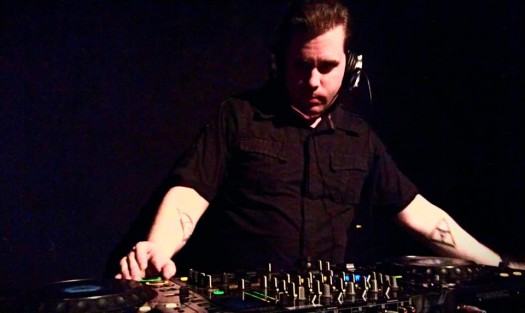

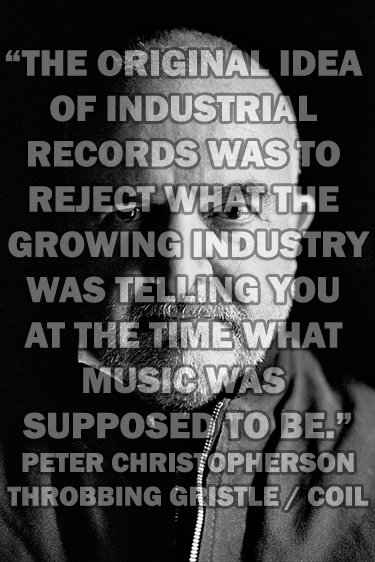
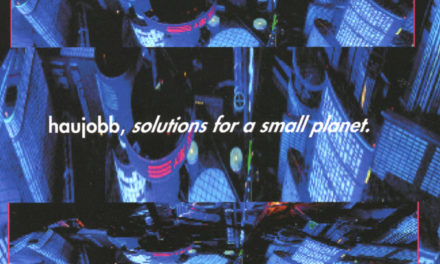
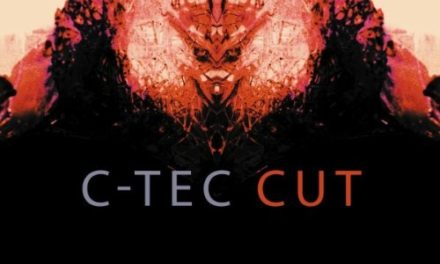
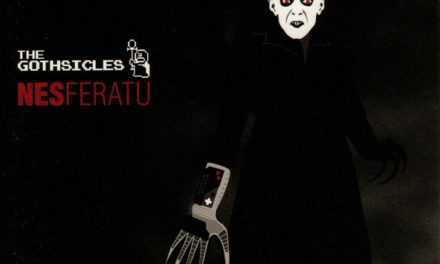
meh. i’m with you on letting things be and stopping squabbling about what’s really real and what’s poseur and who is cool and who is uncool and rules about what you should look/sound/think like or what you have to listen to to be “in.” all of that’s crap. music and art are what they are, we approach them from where we are. and we interact and then the effect is different for everyone. so let it be. give up on anything that isn’t authentic and true for you, and don’t worry about everyone else. don’t worry about the scene being “something to be reckoned with” or not – everyone just throw yourself into the genuine and true and important – however you formulate it – and let everyone else do what they’re going to do.
“On the topic of things we should not be doing, we as a scene also have to stop holding to the idea that we are underground.”
This is key. This is key to the long-term health of any genre.
Pop culture has a habit of taking “edgy” and “underground” stuff, and picking it clean. Which has certainly happened in this case. It’s hard to be edgy writing songs about S&M when Rhianna just sold a zillion copies with that title, for example. Dressing like the wehrmacht ceases to be shocking when the runways in Paris celebrate what they call “military chic.”
What’s telling is that many new, hip bands are namechecking Nitzer Ebb, Cabaret Voltaire, Neubauten, TG, etc…yet almost NOBODY namechecks anyone past the first wave or two of bands. Whether that’s because they simply don’t know that anyone exists in the genre post-WaxTrax, or because they simply don’t find any third-wave 90’s industrial rock bands relevant isn’t clear. But it pretty much means that the scene needs to stop trying to invite the kids to our kegger, and maybe try and get the kids to invite them to the cool parties. Otherwise it’s going to just be another iteration of dad-rock, music by aging white collar IT guys based loosely on cool music made 30 years ago.
“Whether that’s because they simply don’t know that anyone exists in the genre post-WaxTrax, or because they simply don’t find any third-wave 90′s industrial rock bands relevant isn’t clear.”
I think it is two things.
The easier part is that by many accounts, the artistic integrity of the “scene” disintegrated in 1994 or thereabouts, when 242 disbanded, sp imploded, coil permanently shelved backwards, and trent’s successes (commericial and otherwise) hellspawned the gravity kills clone army. After that, well… it was all blue mondays for a while. 15 years later we finally have grimes, white car, la, etc.
The harder part is that the “high watermark” of the early 90s produced a lot of really complex, abstract music. Last rights, furnace, LSD. Production reached ridiculous levels, with a combination of cheaper equipment and software, the money infusion from NIN and Ministry’s success. Up Evil and Evil Off are very dense records. There was a general movement towards complexity across many subgenres; e.g. MBV’s loveless. These were accomplished artists pushing themselves towards unknown futures. The results were spectacular, but then again it took Kevin Shields 20 years just to put out his next record.
If you are a novice (and everyone doing interesting stuff is in this business now), it’s not easy to _start_ here. Perhaps, if any of the promising artists of today are able to survive the needed 5-10 years of incubation, a new, different level of complexity and musical experimentation will happen down the road. In the mean time it would help if can agree that just because an artist is “hipster approved,” pitchfork-cited or otherwise tarnished by popularity, the integrity of the art and not the underground coolness factor is paramount. Just saying
Well, perhaps there’s that, but I think there’s also a willful reinvention going on. A lot of those complex records were also very “of their time” and spoke to a very 90’s aesthetic. A lot of the new crop are using the first-wave bands – TG, Coil, SPK, DAF, Siouxsie, Bauhaus etc – as first principles and rebuilding from that starting point in a divergent manner. Certainly a lot of the producers are talented enough that if they wanted to sound like Last Rights, they probably could. I just don’t think they want to. They snag instead the roots of an aesthetic and make it their own, and in the process removing any baggage the more developed later-period stuff might’ve had (the association with rampant heroin use, scifi fans in black trenchcoats, Marilyn Manson videos, etc).
“They snag instead the roots of an aesthetic and make it their own, and in the process removing any baggage the more developed later-period stuff might’ve had”
I certainly agree with this statement, and I’m not advocating that anyone should be producing another last rights or LSD. Knockoffs have been perhaps the biggest scourge in industrial music over the past XX years. I do think something changed in the early 90s, though. There was some kind of phase transition, wherein it became more important to “be” industrial than to make interesting, challenging, experimental music. That said, I listen to _Visions_ and _Geidi Primes_ a lot more than I listen to any of those old records these days.
I guess my main point is that the self-immolation of the recording industry and the notion of recorded music as an artistic commodity has led to many things, most of which I would argue have been good for the music-consuming public. One negative factor, however, is that it is much harder now to make a living off of making music, or working in the music industry, than it used to be. A downside is that most underground musicians, even talented ones, never move out of the hobbyist stage. That’s not necessarily a bad thing, except for the anecdotal evidence that it seems like most of the producers who keep making music do the same thing over and over again; there is little evolution. Once afraid of swords, always afraid of swords. Instead evolution occurs through the spawning of a new microgenre every 6 months. I’d like to see talented artists be able to establish enough financial stability that they can focus on evolving their sound and moving away from their influences.
I remember walking in downtown Baltimore heading to a store that specialized in heavy metal and was good for finding industrial as well, about 1993 or so. This cute girl with a lot of piercings and a sort of industrial punk look going on stopped in front of me, visibly looked me down, head to toe and back up again, and expressed her incredulity that one such as I might wear a Skinny Puppy t-shirt with “yeah, right”, and walked off. I was in the military at the time, so my degree of external personal expression was more limited. I’ve taken from that day the lesson of “not being that guy” myself, in industrial culture or any other musical culture I’m representing. When we go to the club, I’m wearing a very extroverted industrial look with elements of BDSM and other frippery, but I don’t have a lot of patience with people who look down on anyone else for coming in in “regular” attire. I’ve had too many great conversations at dance clubs with people about music I like to worry about the fact that they were wearing a t-shirt to some Ozzfest band, that they were wearing a t-shirt, jeans and baseball cap to an industrial club, or because some band they were representing isn’t one I cared for. I’ll talk to you about Spahn Ranch whether you’re wearing a Skinny Puppy t-shirt or an ICP necklace – and have.
I’ve had some great times when I’ve mentally checked my preconceptions at the door. This was one of those times: http://www.unhelpful.org/2009/07/27/sunn-o-pontiac-michigan-11-july-2009/